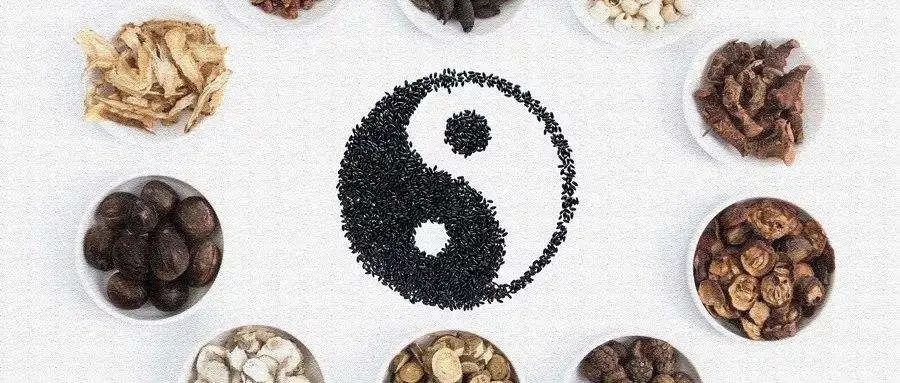It is common to hear people around us refer to themselves as having “Qi deficiency” or “dual deficiency of Qi and blood”… Especially as we enter autumn and continue through winter, many feel lethargic, have cold hands and feet, poor appetite, and negative thoughts… Many do not take this seriously and consider it a common “sub-health” state. However, Qi deficiency can be classified into different types, with varying symptoms and treatment methods. This explains why the same herbal remedy may work well for others but worsen one’s own condition.

The common types of Qi deficiency include the following five categories:
1. Heart Qi Deficiency
The heart governs blood vessels and houses the spirit.
When Heart Qi is deficient, it cannot invigorate the blood vessels or nourish the spirit, leading to symptoms such as chest tightness, palpitations, irregular heartbeat, insomnia with vivid dreams, forgetfulness, sluggish response, pale complexion, dry lips, and dull eyes.
2. Liver Qi Deficiency
The liver governs tendons, regulates the flow of Qi, and stores blood.
When Liver Qi is weak, its ability to regulate is impaired, leading to symptoms such as irritability, dizziness, weakness in the lower back and knees, insomnia with vivid dreams, anxiety, emotional sensitivity, irregular menstruation, breast hyperplasia, uterine fibroids, and ovarian cysts.
3. Spleen Qi Deficiency
The spleen is located in the middle burner, responsible for transformation and transportation, and governs the ascending of clear Qi.
When Spleen Qi is deficient, it cannot transform food and fluids effectively, leading to symptoms such as poor appetite, poor digestion and absorption, abdominal distension, irregular menstruation, weight loss or obesity, edema, fatigue, dizziness, organ prolapse, mouth sores, pale and rough lips, halitosis, yellowish and dull complexion, and lack of skin elasticity.
4. Lung Qi Deficiency
The lungs govern Qi, control respiration, and connect with the skin and hair.
When Lung Qi is deficient, respiratory and fluid metabolism functions weaken, leading to symptoms such as chest tightness, shortness of breath, low voice, sensitivity to cold, spontaneous sweating, susceptibility to colds, chronic rhinitis, skin diseases, constipation, rough skin, and allergies.
5. Kidney Qi Deficiency
The kidneys are located in the lower abdomen, store essence, and regulate the opening and closing of the two yin.
When Kidney Qi is deficient, it fails to nourish the body, leading to symptoms such as sensitivity to cold, cold extremities, tinnitus, dizziness, osteoporosis, cervical and lumbar spondylosis, lower back and knee pain, mental fatigue, premature ejaculation, developmental issues, infertility due to cold uterus, dark circles, fine lines, dark spots, weight gain, hair loss, and graying hair.

Diagnosis and treatment should be tailored to the specific type of deficiency!
1. Treatment for Heart Qi Deficiency
The focus is on tonifying Heart Qi, avoiding spicy, cold, fatty, and alcoholic foods. Mental and lifestyle care is crucial, overcoming negative emotions such as impatience, fear, and anxiety. The living environment should be quiet, free from noise, and ensure fresh air, cleanliness, and comfort for restful sleep.
2. Treatment for Liver Qi Deficiency
One may take Ping Gan Shu Luo Wan (Calm the Liver and Soothe the Channels Pill) and consume sour plums, goji berries, and black fungus. Sour plums are rich in liver wood energy, promoting liver Qi and nourishing liver blood. Goji berries also support liver Qi. Black fungus nourishes liver blood and tendons.
3. Treatment for Spleen Qi Deficiency
The focus is on strengthening the spleen and boosting Qi, with remedies such as Bu Zhong Yi Qi Wan (Tonify the Middle and Boost Qi Pill) and Ren Shen Jian Pi Wan (Ginseng Spleen Strengthening Pill). It is advisable to consume foods that enhance immune function and are high in calcium; avoid hard-to-digest, dry, and stimulating foods. Minimize mental strain before meals, focus on eating, and rest briefly after meals to develop good habits.
4. Treatment for Lung Qi Deficiency
Oral administration of Huang Qi (Astragalus) granules, maintaining a balanced diet rich in various vitamins, drinking plenty of water, eating fruits, and avoiding raw, hard, or spoiled foods, as well as alcohol and strong spices. Moderate exercise to enhance physical strength is beneficial. Foods that are good for Lung Qi include black fungus, lily, yam, sesame, goji berries, coix seed, red dates, lotus seeds, and walnuts.
5. Treatment for Kidney Qi Deficiency
One may take Shen Qi Di Huang Tang (Ginseng and Astragalus Rehmannia Decoction) or Liu Wei Di Huang Wan (Six-Ingredient Rehmannia Pill). While Liu Wei Di Huang Wan is an excellent remedy for kidney tonification, it is important to note that it is suitable only for patients with Kidney Yin deficiency, not for those with symptoms of cold sensitivity, cold extremities, or loose stools associated with Kidney Yang and Qi deficiency. Most elderly individuals with kidney deficiency often have Kidney Yang and Qi deficiency, which may also be accompanied by low immunity. It is advisable to consume legumes, especially black beans, and prioritize red fruits as black fruits are less common.

